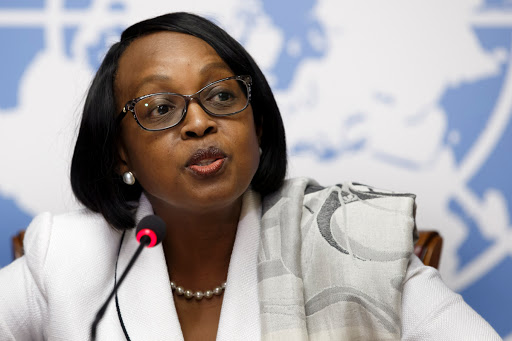Ministers and senior officials have called on the international community to reform the financial system and the ways it offers support to small states in the wake of the COVID-19 pandemic.
Representatives of Commonwealth member countries met in the margins of the United Nations General Assembly to discuss the urgent need for improved access to financial resources and debt relief to secure small states’ economic resilience and maintain progress on their sustainable development goals (SDGs) and Nationally Determined Commitments (NDC) for tackling climate change.
The virtual event, co-hosted by the Commonwealth Secretariat and the Alliance of Small Island States (AOSIS), saw small countries call for a concerted effort towards a reassessment of the criteria for debt relief, especially given the vulnerabilities of many states exposed by the pandemic.
The IMF estimates that due to the far-reaching economic and social impacts of COVID-19 the real output of small states could fall by 3.1 per cent with GDP potentially declining by about 8.6 per cent, twice that expected in larger countries.
Debt to GDP ratios in some Caribbean states is already past 100 per cent while Commonwealth small states debt ratios are expected to rise from 57.4 per cent to 70.6 per cent, surpassing the IMF’s 60 per cent benchmark.
Many small states are facing an existential threat with the impact of pandemic coming with huge economic ramifications alongside ongoing and devastating effects of climate change
For many small states who rely on tourism, the outlook is dire. With an estimated contraction in tourism of about 20-30 per cent, revenues are at stake and close to 70 million jobs could be lost.
Coronavirus has further weakened small states’ ability to respond to natural disasters and climate change. On average, Caribbean countries suffer yearly losses due to storms equivalent to 17 per cent of their GDP. The IMF estimates disasters cost small states about two per cent of GDP, more than four times that of larger countries.
The pandemic has also exposed how some small states as countries without special access to concessional resources fall into a middle-income trap and struggle to make their case for international assistance. These countries are not eligible for the G20’s debt service suspension initiative (DSSI) and do not qualify for other forms of relief including that provided through the World Bank International Development Association and OECD countries official development assistance.
Speaking at the meeting, Commonwealth Secretary-General Patricia Scotland said:
“Given the wide-ranging impact of COVID-19 we need a new set of criteria for the financial support we offer to vulnerable small states and we must urgently reassess the methods we use to classify countries for official support.
“Many small states are facing an existential threat with the impact of the pandemic coming with huge economic ramifications alongside the ongoing and devastating effects of climate change. If we are to be able to meet the very real and urgent needs of these small states we must redefine economic vulnerability and as regional and multilateral institutions, we must agree on the appropriate definitions and measurement of economic vulnerability.
“This is not a crisis we can ignore or wish away and a failure to fully tackle these issues will put economies, livelihoods and communities at real risk. We must act and act now during these times of crisis.”
The Commonwealth Secretariat and AOSIS have called on the UN General Assembly to:
- Encourage G20 and G7 members to widen access to Debt Service Suspension Initiative (DSSI) as well as to consider outright debt relief for highly vulnerable and indebted small states. Additionally, to consider all forms of innovative financing – for example, debt for development swaps to improve small states access to affordable financing; to fight the effects of COVID-19; and to help them attain economic resilience.
- Consider systematic debt restructuring options to improve solvency conditions for small states in the medium to long term.
- Motivate increased partnership between multilateral and regional institutions, particularly towards an agreement on the definition and measurement of economic vulnerability, and the consideration of the metric as a criterion in international concessional financial instruments.
- Recognise work on the development of multidimensional and dynamic vulnerability indices being done by the Caribbean Development Bank and Commonwealth Secretariat.



1 comment
[…] READ ALSO: Coronavirus: We Need New Criteria For Financial Support To Vulnerable States – United Nations […]